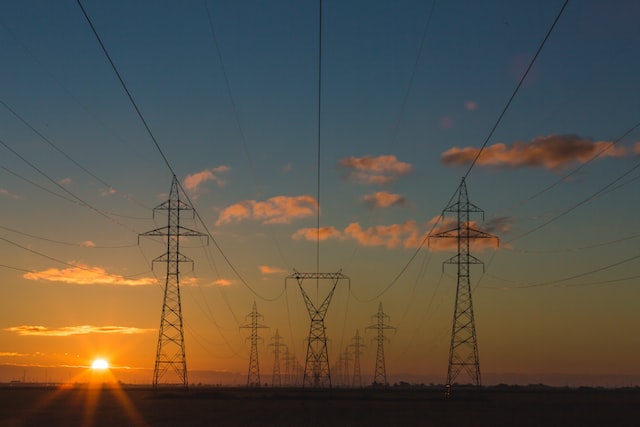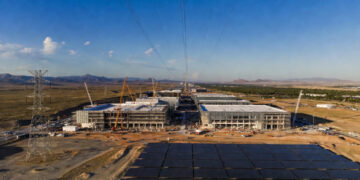Everyone should show their gratitude and appreciation for electricity by refraining from becoming either irresponsibly extravagant or uncharitable or from using many electric lamps as well as air conditioners in mosques while people are praying because doing so not only results in financial loss but also increases the risk of a power cut in private residences, hospitals, as well as public buildings.
To save energy, some mosque administrators have started introducing procedures where group prayers are held only in a certain area of the mosques for required prayers where air conditioning plus lighting systems are run.
However, on Fridays, the mosques’ whole prayer halls are filled. I believe that to make the best use of electricity, it will be best for you to read this article so you can have a better understanding.
Here are some tips for maximizing the use of electricity
- Use of a computer program that triggers the air conditioning unit to come on automatically at the appropriate moments for prayer.
- Use the air conditioning whenever it is required, such as when saying a prayer. Before the time for prayer, operate the air conditioner long enough.
- Set the thermostat to a comfortable level of about 25 C.
- Immediately after the following prayer, make careful to switch off any air conditioners.
- All HVAC systems should have preventive maintenance performed at least once a year.
- Cleaning the air purifiers once every 2 weeks will help to get rid of dust particles that might obstruct the movement of warm air from within the space to the outside, increasing power usage and driving up the cost of electricity.
- Instead of using air conditioning whenever feasible, use electric fans, and leave the windows open to let fresh air and scents in while ventilating the space.
- All windows and doors should be closed whenever the air conditioning is still on to keep warm air from getting to the mosque.
- Avoid warm air entering the mosque by using automatic door closers at the entrances.
- To benefit from natural sunshine indoors and prevent the mosque from being too warm, use clear double-glazed glass for the windows.
- Use bulbs that save energy.
- After the prayers, dim or turn the lights off in the mosque and its surroundings. 13. During the summer, make sure the heating systems have been turned off.
- Make sure the thermostat is operating properly by checking. The heater runs continually as a result of a broken thermostat.
- Your water heater’s thermostat should be set to 60 C.
- After prayers, turn off the fans in the mosque as well as the bathroom ventilation systems.
- The lighting system surrounding the mosques’ fences can be turned on and off using a photocell light switch.
Peak hours per day for electricity
During the summer, there is daily peak stress between the hours of 12 as well as 5. To prevent a power outage at mosques caused by the rate of rising electricity consumption, it is highly advised that you put off using any unneeded electrical devices during that period.
Reduce your mosque’s expenses by conserving electricity
Every community works toward lowering energy costs while maximizing energy savings. However, given that the Islamic community struggles substantially from fuel poverty, supporting your mosque as it sets the bar for systems that can be operated could also benefit the community.
Changes in energy providers are among the most efficient ways to reduce your mosque’s corporate energy costs. There is an easy way you can switch your current energy supplier with a new one by consulting Utility Bidder.
They will not only help you change your supplier but find you deals that are cost-effective and will also save you a lot of your time.
Why should you switch your energy supplier?
Generally speaking, your mosque would save money if you choose the same provider for both electricity as well as gas. Even though mosque interiors are frequently dark and lack natural light, the tranquil ambiance is frequently enhanced by a large number of artificial lights.
These little lights have lovely looks and are frequently used for decoration, but they can consume a lot of electricity.
Replace ordinary lights with newer LED energy-saving equivalents as one approach to lower energy costs. When mosques in Turkey implemented this type of replacement, their electricity expenses were cut by an astounding 65 percent. This will be a great way for you to save money and have a greener mosque.
Create an energy club
With the help of their clever plan, Energy Local, neighbors can band together to help local renewable energy producers as well as bargain for lower energy costs. Just a little bit more work than switching suppliers.
It won’t be a complete answer and will only serve as a band-aid for the energy shortage that everyone is about to enter, but any small bit will help.
It is believed that regardless of whether you reside next to a nearby renewable energy generator, or maybe even a similarly public place with enough solar panels, this could prove to be a very simple way to reduce your expenses a little bit while simultaneously supporting the nearby generator as well as school.
Conclusion
Finally, we are almost there, utilizing sensors, actuators, calculators, IT, lighting, HVAC, as well as water consumption can be managed and reduced.
For better results, the sensor may be placed separately from the device but in the same location, or it may be included in the device for a more portable and adaptable design that can help save energy and money.
To achieve a sustainable mosque’s objectives, the design must take into account the site’s historical context, local issues, and technological advancements.
Machine learning from real-world data on the use of energy, water, and people across a wide range of geography and time may be the future of information plus design technology.









